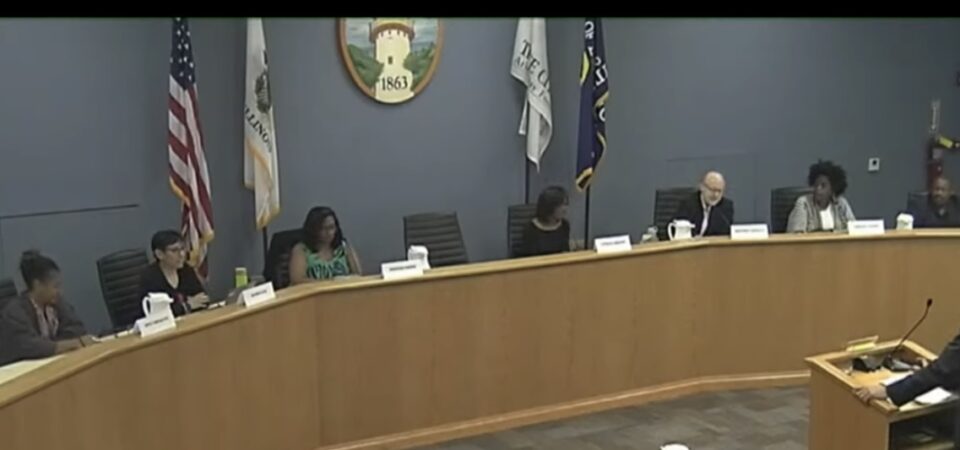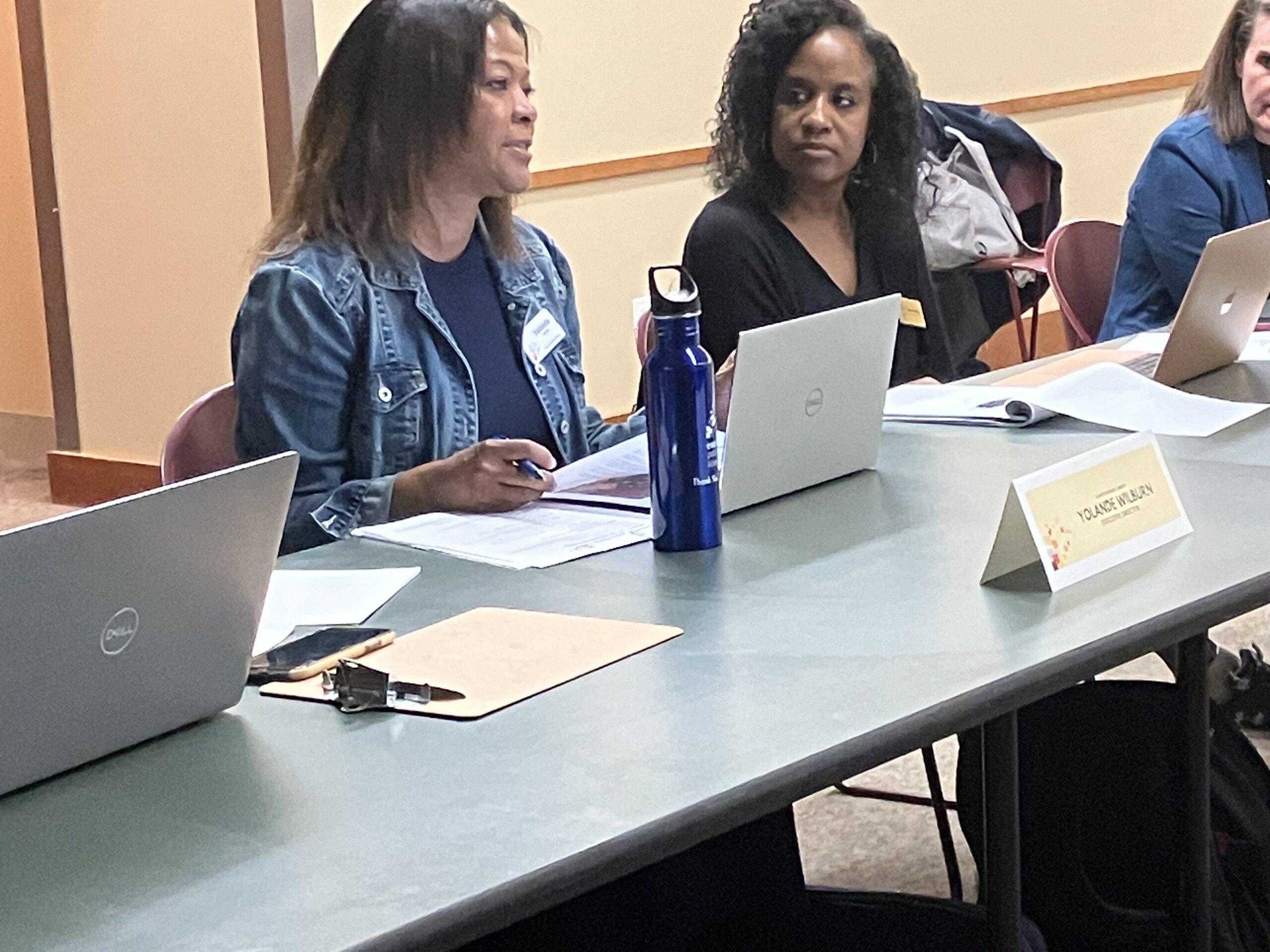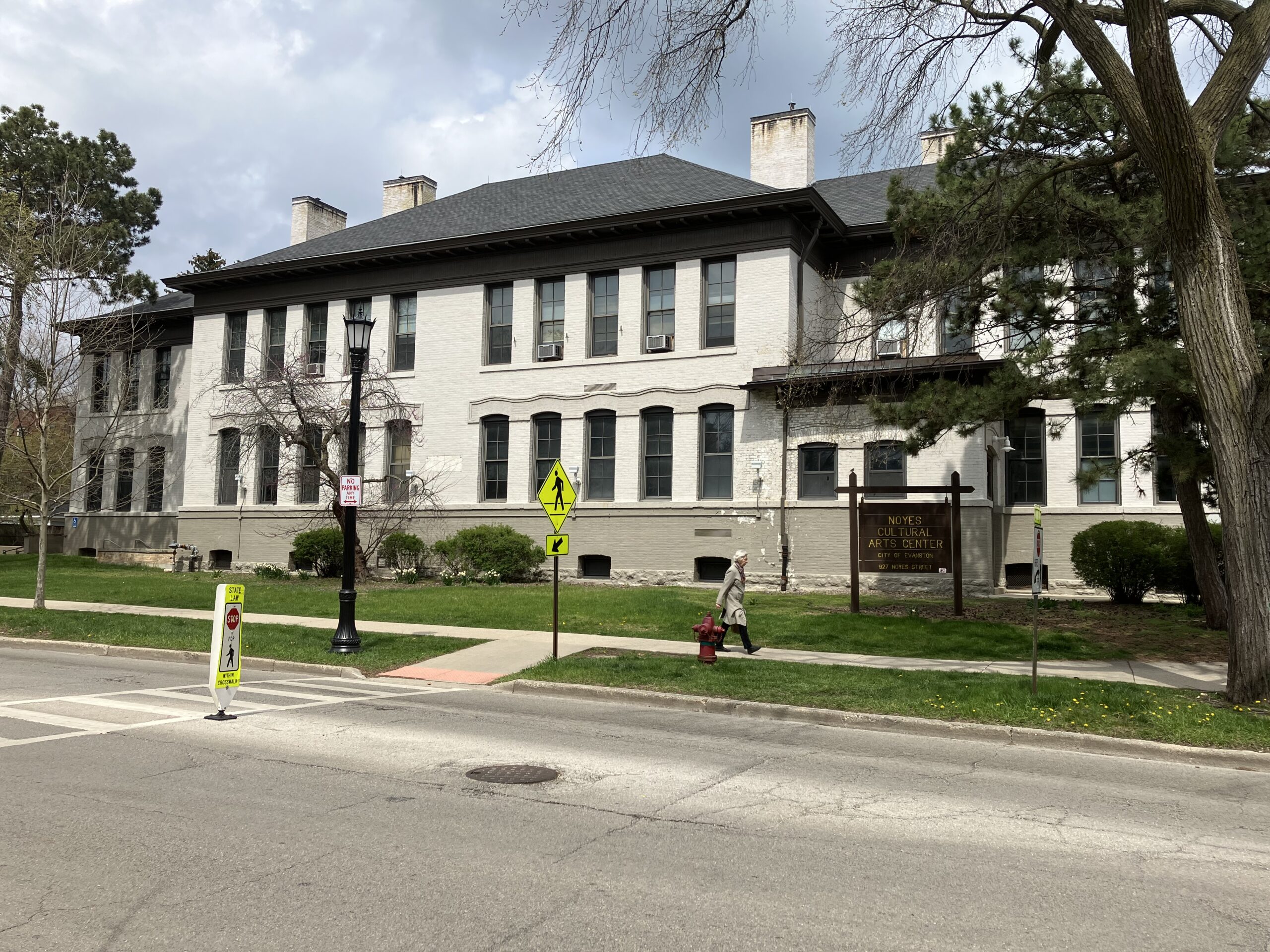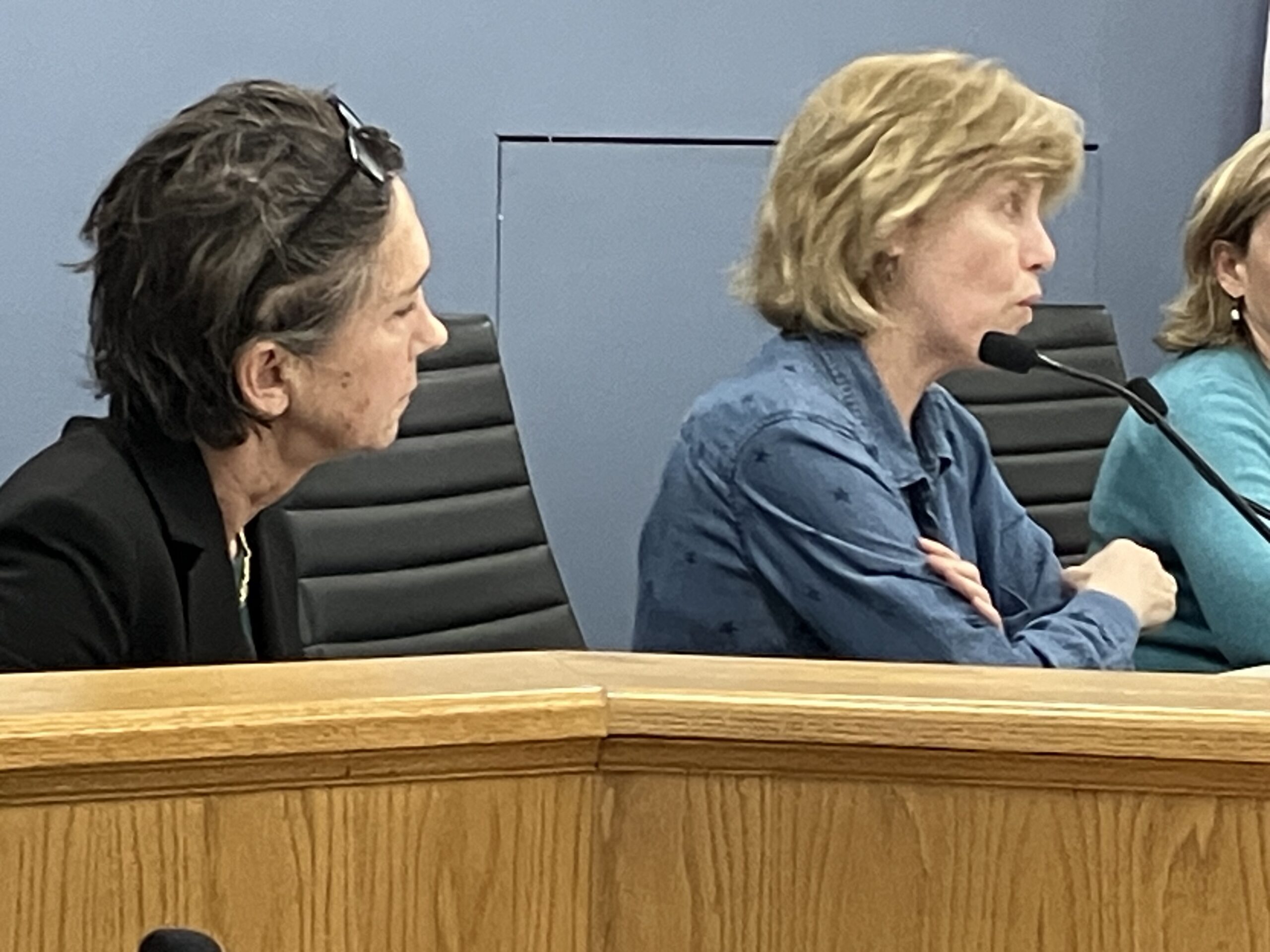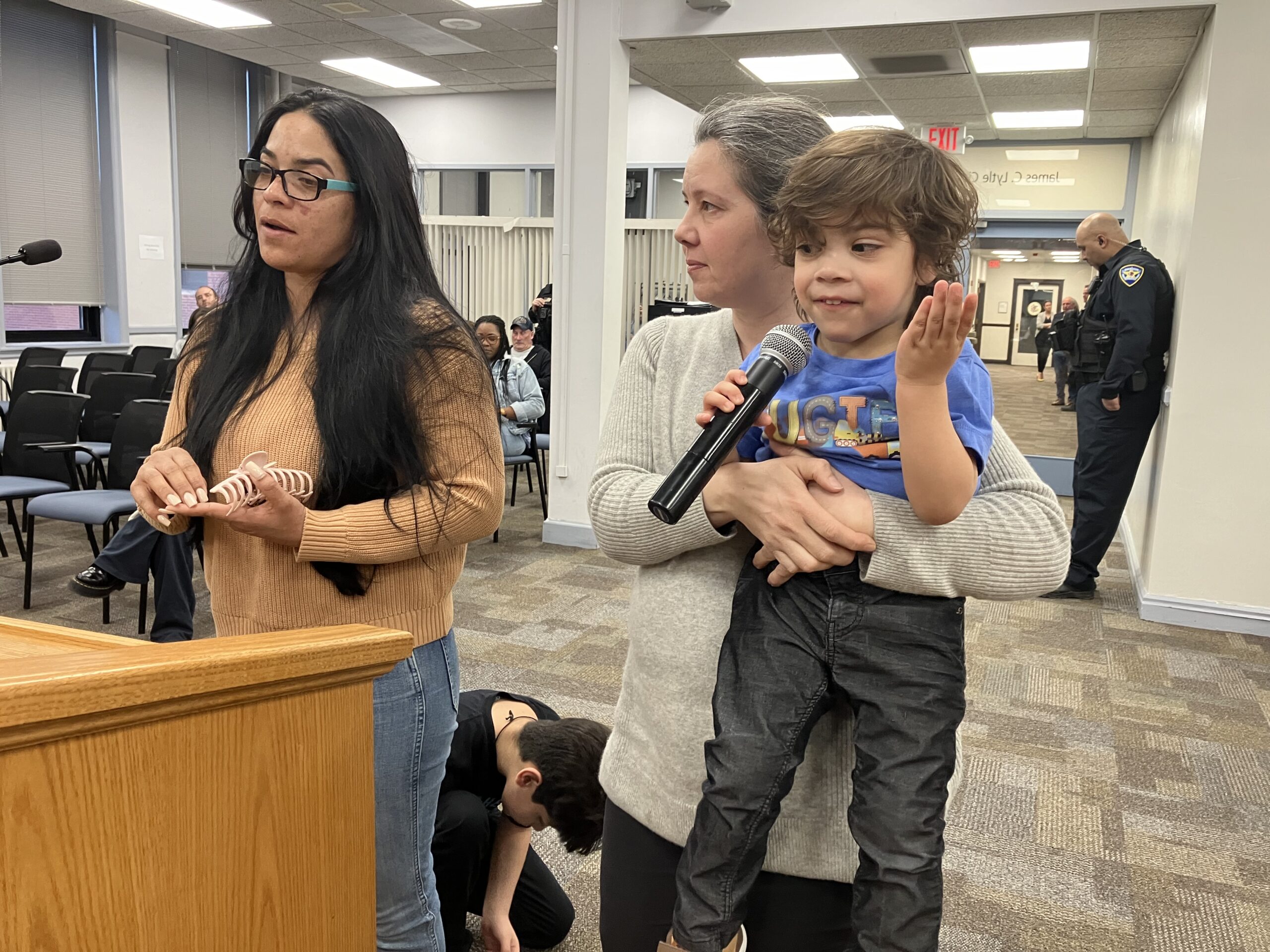By Bob Seidenberg
Public safety and addressing understaffing in the Police Department were identified as top concerns by a number of candidates for a vacant Second Ward City Council seat who spoke at a lively Sept. 6 forum.
Mayor Daniel Biss posed a question about public safety at the forum at the Morton Civic Center to hear the seven remaining candidates who are vying to be selected to fill the seat of longtime Council Member Peter Braithwaite.
Braithwaite, who spent 10 years representing the central Evanston ward, announced in July he would be stepping down from his post.
Just as with the Ninth Ward vacancy earlier in the year, the mayor – with the review and consent of the council – will appoint someone to fill Braithwaite’s seat until a special election next year, where the winner will serve out the remainder of the term until the next municipal election in 2025.
Biss said at the meeting that he hoped to make his decision in time for release of the information packet that the city is scheduled to send out Friday, Sept. 9 before the Sept. 12 City Council meeting.
The Second Ward, which includes the Dempster-Dodge area and extends west to the streets around the high school, has been the scene of several major shootings recently, including one on the 1300 block of Fowler Avenue where a 13-year-old girl was seriously wounded while attending a backyard party with other teenagers.
At the forum, the mayor asked candidates how they plan to approach the issues of public safety, crime and policing.
Banks: Two-prong approach needed
Keith Banks, the first candidate to be called upon, said that “a two-pronged approach is crucial.”
Banks, who is Executive Director of the Reba Place Development Corp., a faith-based organization that develops affordable housing, said, “This [approach] looks like law enforcement on one hand, then health and community support on the other. This includes affordable housing, mental health support, jobs and training and confronting food insecurity, as well as ensuring that our institutions are equitable, anti-racist and inclusive.
“Law enforcement needs a strong new chief of police who values equity and transparency and who can address the staffing shortages and morale issues in the Evanston Police Department,” said Banks.
Additionally, Banks said he would focus on issues of mental health, including support for the Living Room program, an alternative to police involvement, creating a safe place for adults in a mental health crisis. He said it is also imperative to create programs, along the lines of the Mayor’s Summer Youth Employment Program, to keep youths busy and off the streets.
Cannon: ‘All hands on the deck’
“Everyone wants, needs and deserves safety in our neighborhoods,” said Darlene Cannon, a lifelong resident of the ward and the only candidate in the field who has run for the council, losing by 71 votes in a strong challenge to the incumbent Braithwaite in the 2021 election. “And the last two shootings have both been within a block of my neighborhood. So the reasonable solution is to increase police and safety presence immediately. It needs to be all hands on the deck to make this happen.
“We need to create some preventative measures. Our young adults deserve to know that they are cared for, and our public institutions need to work together,” she said. “We need to enter and institute ways for our young people to be able to speak to someone if they feel they’re at risk,” she said, proposing that conflict resolution centers be created and located at churches and schools.
“When I think about crime,” Cannon said, “some of the things that concern me are about human needs. Do people have food, clothing, shelter – that’s not always the case. But those are things that we need to think about. And we need to again put through preventative measures to ensure that our communities are safe.”
Farrauto: Outside programs might help
Matthew Farrauto, who moved back to Evanston in 2019 after a career that included a stint as Director of Communications for the Peace Corps under President Barack Obama, agreed with Cannon about the need for action, that “a kitchen sink approach” is needed.
“Across the country, gun homicides have been on the rise and we in Evanston cannot afford to be lulled into that belief that we are somehow different and immune,” he said.
“As a City Council [member], I would look to implement the gun violence reduction strategies listed on Everytown for Gun Safety’s website, but also try to convince young people, young men in particular, than violence is not the answer. I think I would approach President Obama’s initiative – the My Brother’s Keeper Alliance [to address opportunity gaps boys and young men of color face] to ask for help … and I might even propose a field trip for younger high school students to an area jail or prison. Something to highlight the consequences of incarceration.”
He said he would also inquire about the new suicide crisis hotline number, 988, “because I think social workers and medical professionals should be on the front lines of the mental health crisis, not cops.”
Gregory: Strengthen Y.O.U., Officer and Gentlemen
Patricia Gregory, a physical education teacher at Lincoln Elementary School and a member of the city’s Parks and Recreation Board, called public safety and crime “a huge concern of mine, both in the ward and in the community.”
“Most of the concern is with us having and using guns,” she said. “Right now we have two popular programs that I know of, Y.O.U. [Youth & Opportunity United] and Officer and Gentlemen [Academy]. I’d like to make these programs more effective, and implement additional programs to include parents, because these children come from somewhere. And that’s very important to me, very kind of scary too. But we have enough data also and consulting to know that traditional way of policing is not working in today’s society.”
Harris: Programs that reconnect youth to community
Krissie Harris, a lifelong resident of the city and administrator at Oakton Community College, led off her response by asking for a few moments “to pay homage to the families affected by the most recent incidents of violence that have happened, not only in the Second Ward or the greater Evanston community, but across the globe.”
“We mourn injury and loss of life, and the trauma that these incidents invoke in our neighborhoods,” she said. “We condemn them and we must continue to look for ways to bring our community together. We must act and work together to heal the hurt.
“Trauma-informed care and alternative programs for our youth are key and essential,” she said. “Our youth, our students that work at a college, are not connected to the community anymore. We have to create programs that bring them back into the community and help them know their neighbors.”
If appointed council member, she said, her first plan of action would be to meet with a member of the Police Department’s Problem Solving Team and walk and drive through the ward and get officers’ perspectives. She also spoke of strategies for the city to consider with the understaffing the department is experiencing.
“We have to make sure we direct people where they need to be. For example, a leaf blowing incident, that shouldn’t be a 911 call,” she said. “That’s a call to property standards. And guess what, they [property code enforcement officers] can write tickets as well.”
Lule: Buildup of EPD a key first step
Blanca Lule, a longtime Second Ward resident, and a member of the city’s Citizen Police Review Commission, also pointed to the effect of the police manpower shortage.
“We’re about two dozen officers short – that makes it really difficult to handle calls, whether they’re 911 calls or not,” Lule said.
“We all have ideas on how we want to fix it,” she said of public safety, “but until we build up our Police Department, there’s very little that we can do to address some of the issues in our community.”
Lule said some steps that could be taken now include explaining to the community “what’s a 911 call and what isn’t,” she said. “And also explain to the community that they can text to EPDTIP and explain in the text message, ‘Hey, this is the address. This is what’s going on. Can you send someone to look at it?’
“They can feel safer about reporting it because no one’s going to ask them for their name in that text message unless they want to provide it, so that if they do have some suspicious activity or something that they think needs to be reported, they can go ahead and address that information anonymously.”
Tanyavutti: Expansive approach to public safety
Anya Tanyavutti, a School District 65 board member, spoke of the need to address the underlying needs behind the violence.
“I feel like equity, affordability and inclusion are top priorities,” she said. “And I’ve tried to think about public safety expansively.
“We are safe when our basic needs are met,” she said. “We are safe when we’re housed in bed, when we’re free from stress and worry for ourselves and our loved ones. The right to public safety is a human right. And in my experience in District 65 we talked about how we wanted to best keep our community safe and we had conversations at the board level and we invited residents to speak to us about how they felt about policing in our schools. And one of the things that was communicated to us by our most marginalized populations is that they would feel safer if we address the needs that were being expressed with other means besides resorting to policing immediately.
“And so one of the ways that we have addressed that,” she continued, “is by focusing on restorative justice and mental health investment to acknowledge that many of the needs that are being expressed in ways that are anti-social or not acceptable are expressions of need, especially by children who still have a developing brain and developing mental compass.”
The forum can be viewed in full on Evanston’s YouTube channel and also replayed on the city’s Channel 16.
